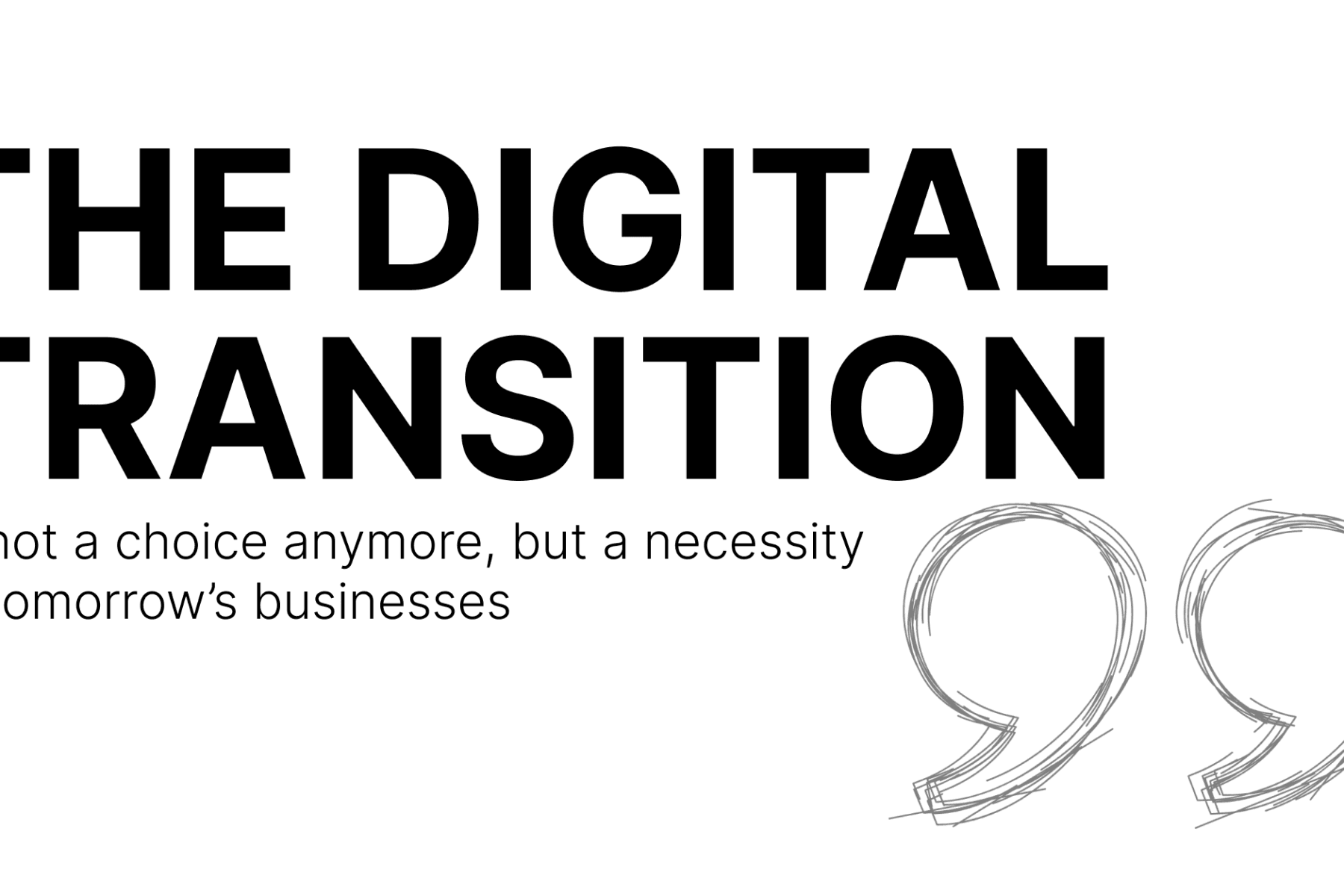In recent years, the concept of digital transition has become central to discussions on corporate growth and development strategies. The COVID-19 pandemic has accelerated this process, pushing companies to reassess their operational methods and invest in innovative technologies to remain competitive.
For this reason, the European Commission has launched numerous projects and strategies aimed at guiding Europe and its citizens into the new digital era, equipping businesses and administrations with a new generation of technologies. These digital solutions promise to open up new opportunities for businesses, create an open and democratic society characterized by a dynamic and sustainable economy, and contribute to the fight against climate change. The goal is to create a Europe ready for the digital age, promoting solutions that improve the lives of citizens, the competitiveness of businesses, and the efficiency of public administrations.

But what exactly does digital transition mean, and why is it so crucial for the future of businesses?
What is Digital Transition?
Digital transformation is the process through which traditional business methods are replaced with new digital technologies across various departments of a company and within its operations to modify how it functions. This is achieved by leveraging the potential of technologies such as cloud computing, AI, and data analytics.
Digital transition represents a profound transformation process that involves the entire corporate structure, leading to the adoption of new digital technologies to optimize processes, improve operational efficiency, and create new business opportunities. This journey is not just about introducing digital tools but also implies a cultural and organizational change that affects every aspect of the company, from data management to customer relations.

The Benefits of Digital Transition
- Improvement of Operational Efficiency: Digital technologies allow for the automation of repetitive processes, reducing human errors and production times. The integration of AI and machine learning solutions enables businesses to optimize operations, predict future needs, and make informed decisions in real-time.
- Increased Competitiveness: In a globalized market, the ability to innovate and quickly adapt to changes is crucial. Companies that adopt advanced digital technologies can offer more personalized and timely products and services, enhancing customer satisfaction and gaining a competitive edge over less agile competitors.
- Optimization of Customer Experience: Digitalization enables more effective data collection and analysis on customers, offering more personalized and engaging experiences. CRM (Customer Relationship Management) platforms and data analysis tools allow for a better understanding of customer needs and the anticipation of their demands, creating stronger and more lasting relationships.
- Cost Reduction: Process automation and the adoption of cloud solutions reduce operational costs by eliminating the need for expensive physical infrastructure and minimizing waste. Additionally, digitalization facilitates resource management and business scalability, allowing companies to grow without proportionally increasing costs.
The Challenges of Digital Transition
Despite the numerous benefits, digital transition also presents significant challenges. The change requires an initial investment in terms of financial resources and time. Moreover, the success of digitalization depends on the company’s ability to manage change and train its personnel in new technologies.

One of the main difficulties lies in resistance to change. Many companies, especially those with a long history, may be reluctant to abandon established methods in favor of innovative digital solutions. Overcoming this resistance requires strong leadership, a clear vision of the future, and a consistent commitment to training and supporting staff.
How to Start the Digital Transition
The first step towards digital transition is assessing the current state of the company. It is essential to understand which processes can be optimized through digitalization and which tools are necessary to support this change. Creating a digital roadmap that outlines short- and long-term goals is fundamental to guiding the entire process.
Another crucial aspect is the choice of technology partners. Collaborating with an experienced and reliable software house can make a significant difference in the success of the digital transition. Software development companies like ours play a crucial role in this transition, acting as agents of change by developing tailored solutions for companies and public administrations. Working with an expert technology partner allows for the acceleration of digital technology adoption, improving efficiency and competitiveness. Therefore, it is essential to choose partners who can interpret the specific needs of each sector, ensuring a smooth and effective digital transition.
Conclusion
Digital transition is no longer an option but a strategic necessity for the future of Europe and for companies that want to thrive in an increasingly digital world. Investing in the right technologies and addressing change with a clear and strategic vision can open up new growth opportunities and ensure a sustainable future for the enterprise.

Investing in the right technologies and skills, with the support of industry experts, is a fundamental step in successfully facing tomorrow’s challenges. Companies and public administrations that embrace this change will find themselves in an advantageous position in the new global economic landscape. For companies looking to embark on this journey, the support of a qualified software house is essential to successfully navigate the waters of digital transformation.
Is your company ready to take the step into the future?


